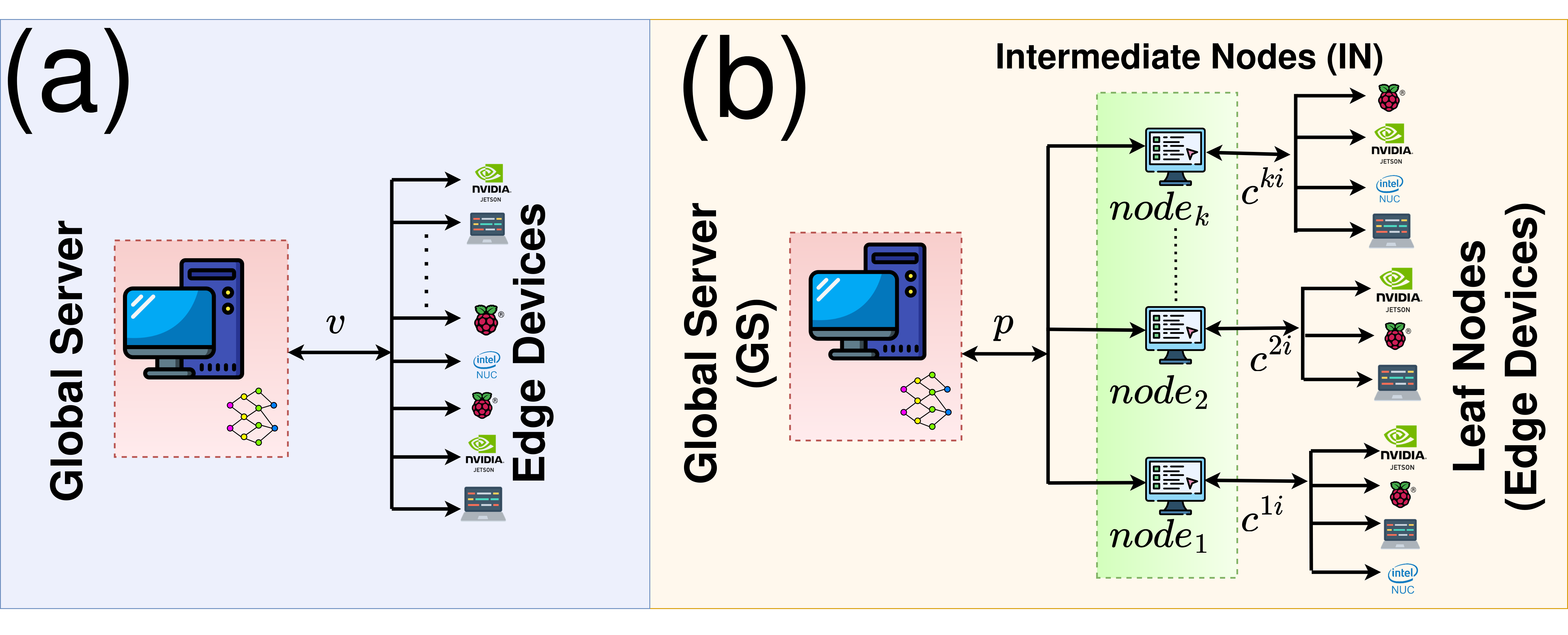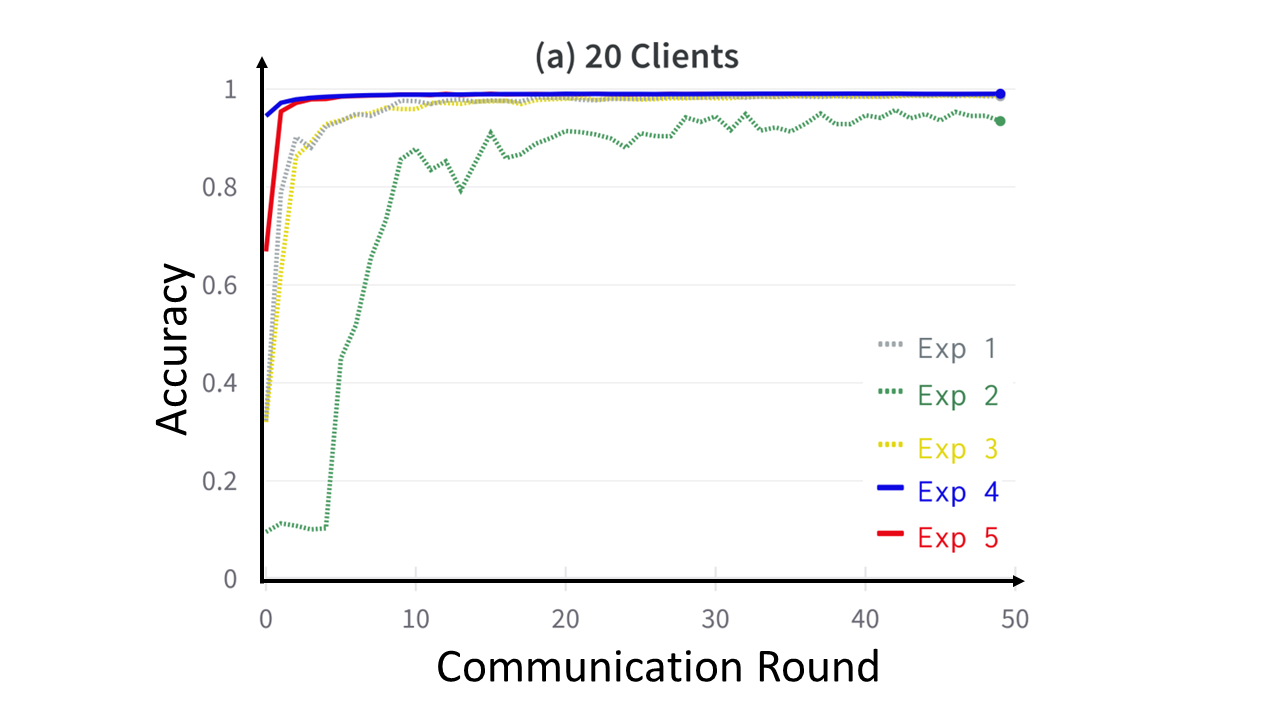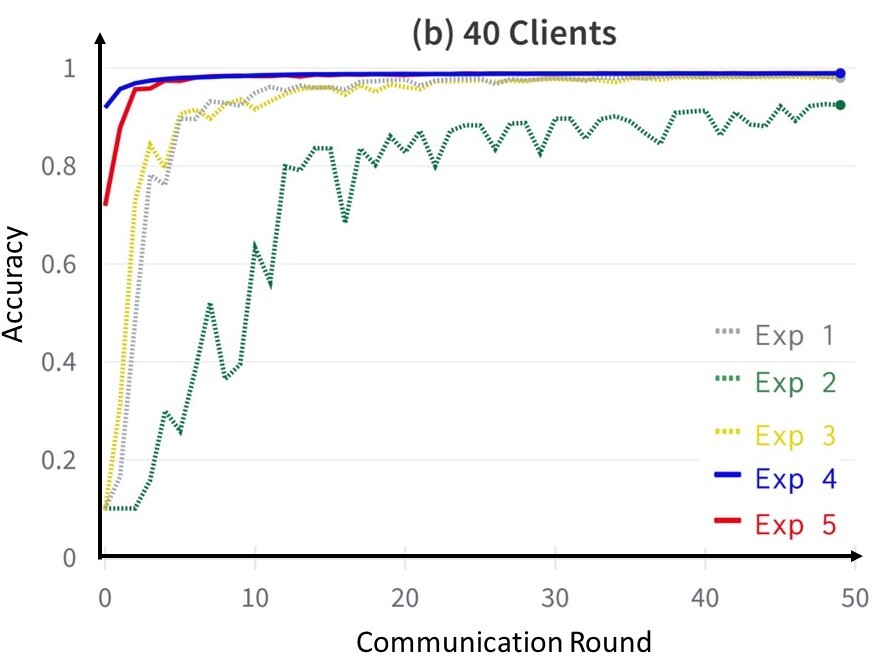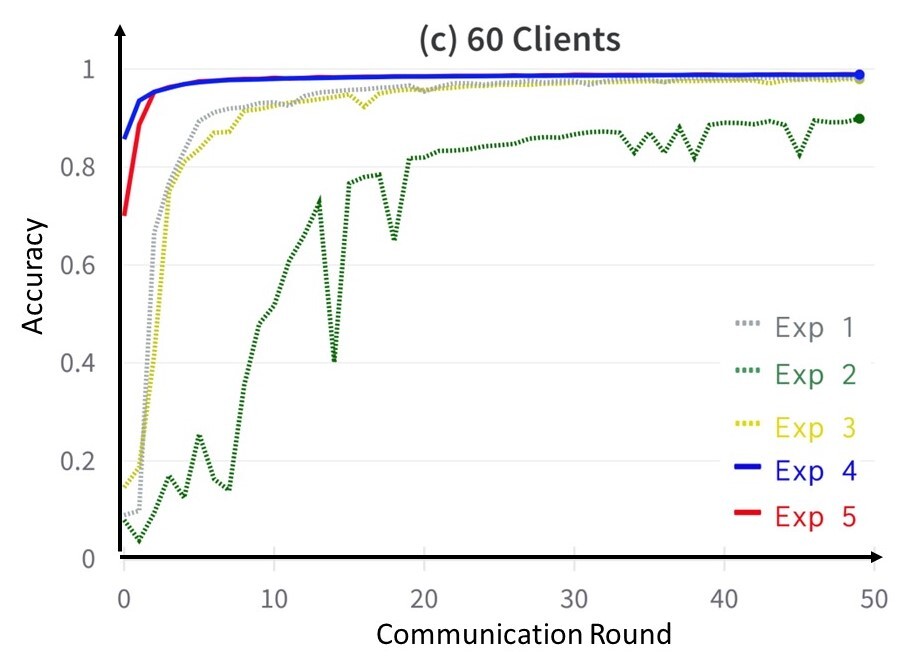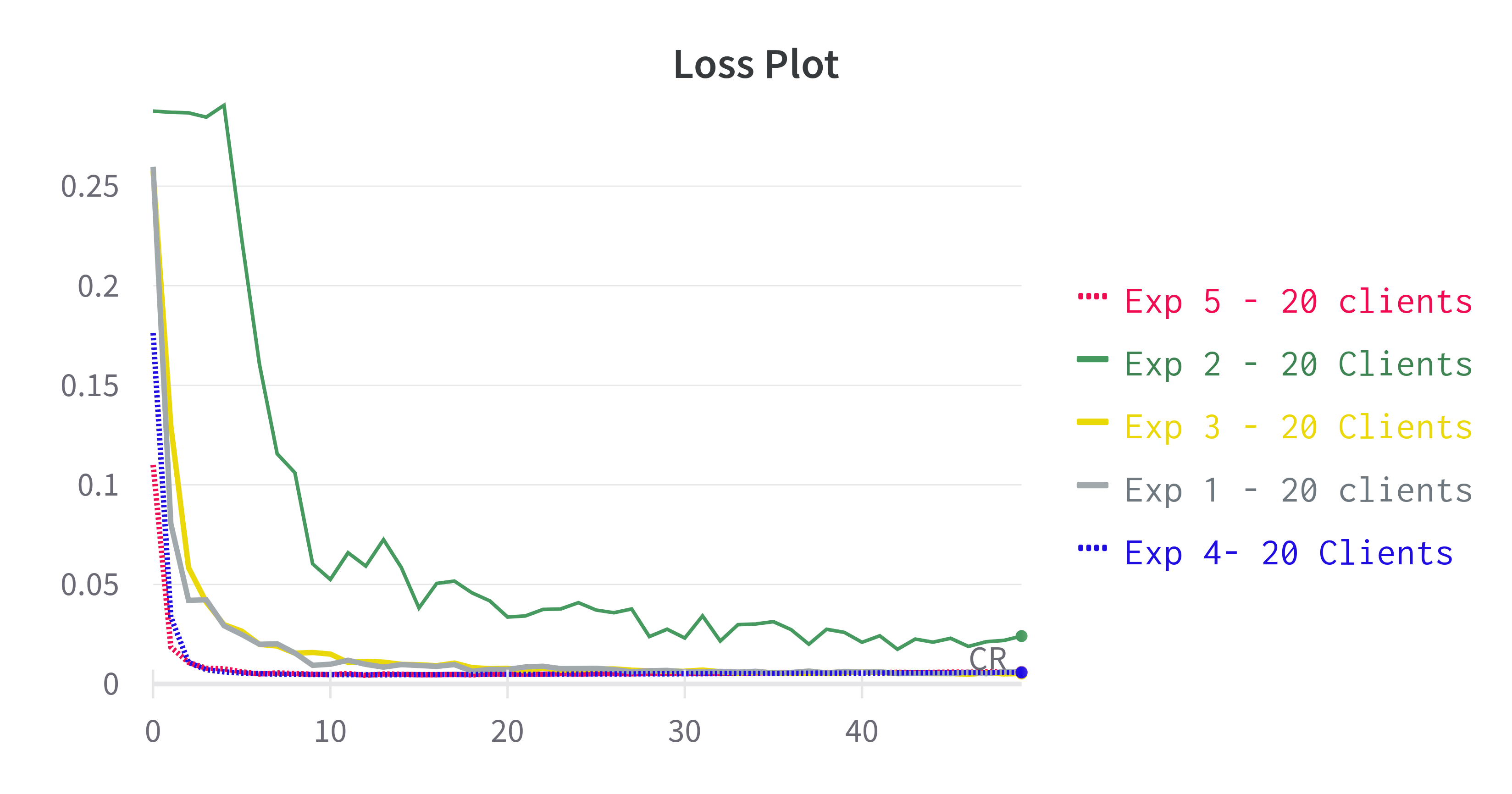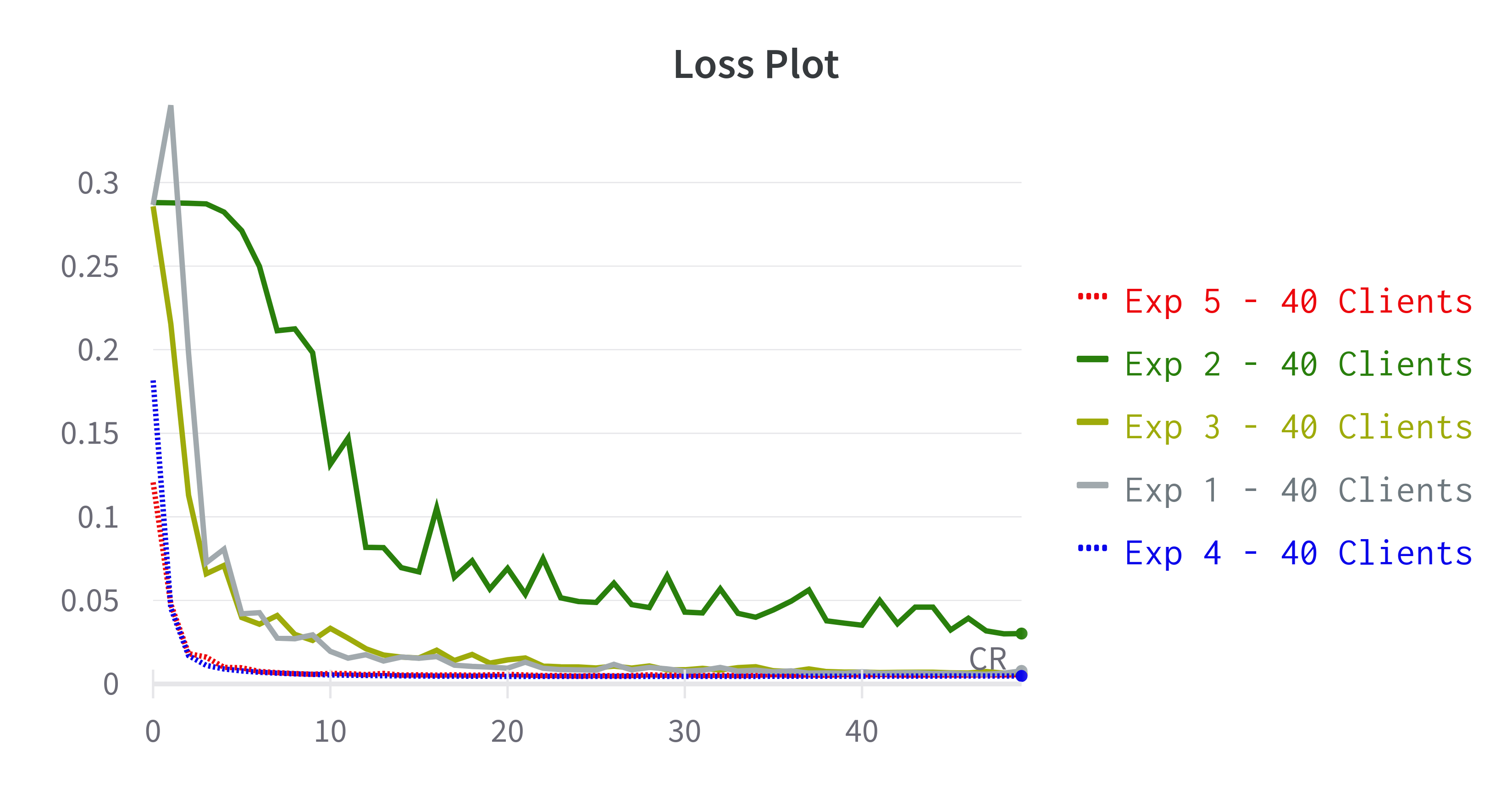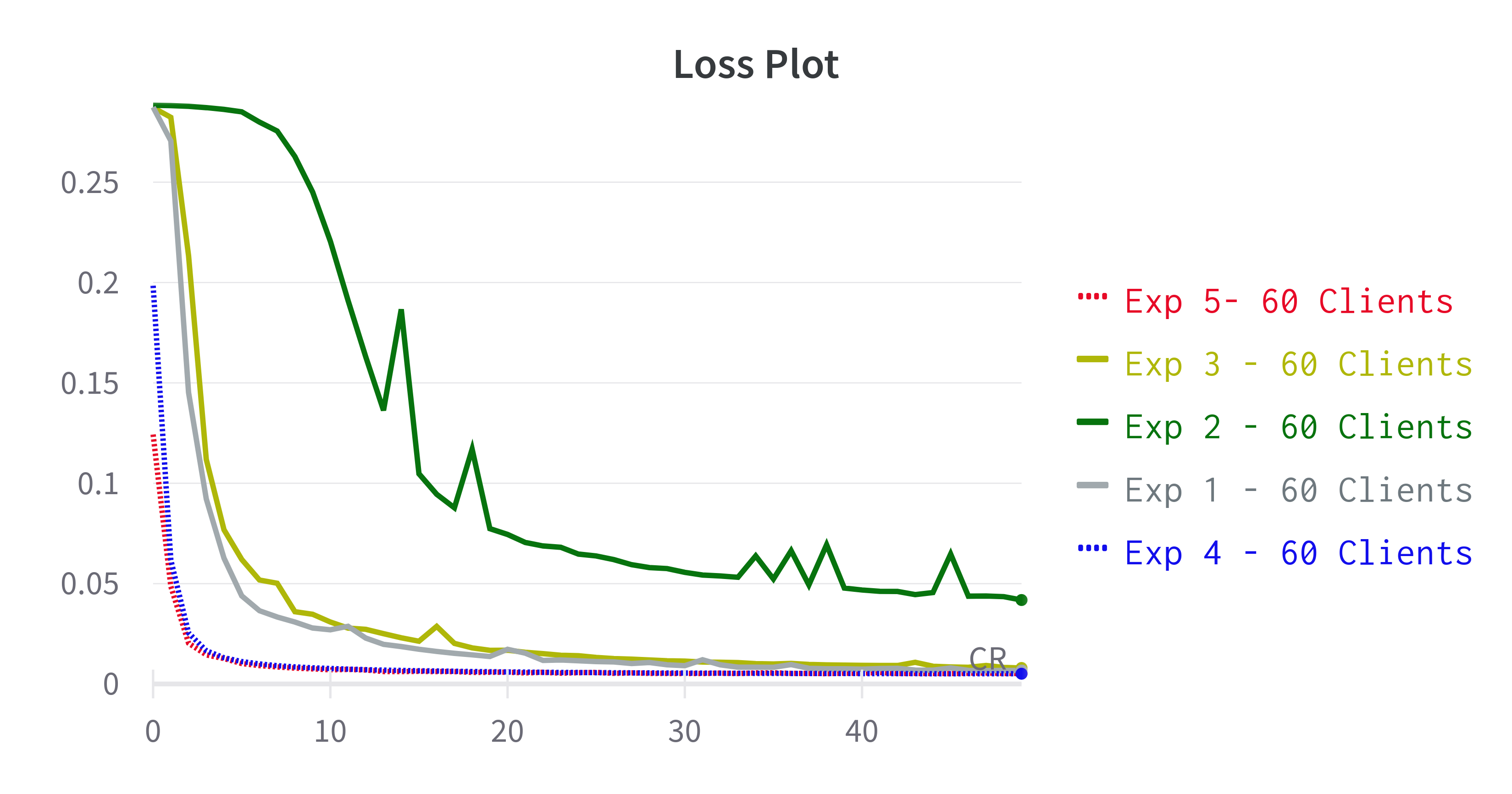Fed2Tier is a novel two-tier federated learning framework aimed at efficient and green computation. It represents an innovative approach to distributed machine learning that emphasizes privacy, scalability, and environmental sustainability. The Fed2Tier framework seeks to enhance model generalizability by involving a greater number of edge devices in the training process.
Fed2Tier has been extensively tested on and works with the following devices:
- Intel CPUs
- Nvidia GPUs
- Nvidia Jetson
- Raspberry Pi
- Intel NUC
$ git clone https://github.com/apoorvakliv/fed2tier.git
$ cd `fed2tier`
$ pip install -r requirements.txt
python -m fed2tier.server.start_server \
--algorithm fedavg \
--nodes 1 \
--n_rounds 10 \
--s_rounds 10 \
--batch_size 10 \
--dataset MNIST \
python -m fed2tier.node.start_node \
--device cpu \
--algorithm scaffold \
--rounds 10 \
--epochs 10 \
--niid 4 \
--clients 15 \
| Argument | Description | Default |
|---|---|---|
--algorithm |
Algorithm to be used for aggregation by server | fedavg |
--nodes |
Number of nodes to be used | 1 |
--s_rounds |
Number of communication rounds to be executed by server | 10 |
--n_rounds |
Maximum number of communication rounds to be executed by nodes | 10 |
--batch_size |
Batch size to be used | 10 |
--dataset |
Dataset to be used | MNIST |
--net |
Network to be used | LeNet |
--accept_conn |
determines if connections accepted after FL begins | 1 |
--model_path |
specifies initial server model path | initial_model.pt |
--resize_size |
specifies dataset resize dimension | 32 |
--threshold |
specifies accuracy threshold for early stopping at each node | 0.8 |
| Argument | Description | Default |
|---|---|---|
--device |
Device to run the client on | cpu |
--wait_time |
Time to wait before sending the next request | 5 |
--clients |
Number of clients to run | 10 |
--niid |
niid or iid | 1 |
--algorithm |
Algorithm to run | fedavg |
--epochs |
Number of epochs | 5 |
--mu |
mu hyperparameter for fedprox | 0.1 |
--rounds |
Number of communication rounds | 20 |
--carbon |
If 1, track carbon emission of the node | 0 |
Files architecture of Fed2Tier. These contents may be helpful for users to understand our repo.
fed2tier
├── fed2tier
│ ├── node
│ │ ├── src
│ │ | ├── algorithms
│ │ | ├── creae_datasets
│ | | ├── node_lib
│ | | ├── node
│ | | ├── ClientConnection_pb2_grpc
│ | | ├── ClientConnection_pb2
│ | | ├── data_utils
│ | | ├── distribution
│ | | ├── get_data
│ | | ├── net_lib
│ | | ├── net
│ │ └── start_node
│ └── server
│ ├── src
│ | ├── algorithms
│ | ├── server_evaluate
│ | ├── client_connection_servicer
│ | ├── client_manager
│ | ├── client_wrapper
│ | ├── ClientConnection_pb2_grpc
│ | ├── ClientConnection_pb2
│ | ├── server_lib
│ | ├── server
│ | ├── verification
│ └── start_server
│
└── unittest
├── misc
├── test_server_algorithms
├── test_node_algorithms
├── test_datasets
├── test_models
└── test_scalability
Various unittests are available in the unittest directory. To run any tests, run the following command from the root directory:
cd unittest
python test_server_algorithms.py
python test_node_algorithms.py
python test_models.py
python test_datasets.py
python test_scalability.py
Following federated learning algorithms are implemented in this framework:
| Algorithm | Paper | Server | Node |
|---|---|---|---|
| FedAvg | Communication-Efficient Learning of Deep Networks from Decentralized Data | ✅ | ✅ |
| FedDyn | Federated Learning Based on Dynamic Regularization | ✅ | |
| Scaffold | SCAFFOLD: Stochastic Controlled Averaging for Federated Learning | ✅ | |
| FedAdagrad | Adaptive Federated Optimization | ✅ | ✅ |
| FedAdam | Adaptive Federated Optimization | ✅ | ✅ |
| FedYogi | Adaptive Federated Optimization | ✅ | ✅ |
| FedProx | FedProx: Federated Learning with Proximity | ✅ |
In the experiments tagged as Exp-1, Exp-2, and Exp-3 , we utilized the aggregation methods: FedAvg, SCAFFOLD, and FedProx . These were set within the standard FL framework. We incorporated client groups consisting of 20, 40, and 60 members and designated ( v ) as 50. Throughout these experiments:
- 50% of our clients operated with a β value of 1 (i.i.d.)
- The remaining clients operated with β=4 (non-i.i.d)
To understand the performance of Fed2Tier, we initiated it with ( K=2 ). Within this configuration:
- One IN utilized a β=1 (i.i.d.) data pattern and adopted the FedAvg aggregation technique.
- A separate node, operating under β=4 (non-i.i.d.), chose either the SCAFFOLD (observed in Exp-4) or the FedProx (for Exp-5) aggregation methodology.
The GS applied FedAvg for merging models received from the IN. These trials were executed with client numbers being 20, 40, and 60, evenly spread out across the IN.
The following tables provide comparative analysis in terms of total time taken, carbon emitted, and accuracy between vanilla FL and Fed2Tier.
| No. of client | Vanilla - Exp-1 | Vanilla - Exp-2 | Vanilla - Exp-3 | Proposed - Exp-4 | Proposed - Exp-5 |
|---|---|---|---|---|---|
| 20 | 252.94 | 260.55 | 304.62 | 206.97 | 225.2 |
| 40 | 274.34 | 281.38 | 337.95 | 222.35 | 250.1 |
| 60 | 294.98 | 300.41 | 351.63 | 241.98 | 260.8 |
| No. of client | Vanilla - Exp-1 | Vanilla - Exp-2 | Vanilla - Exp-3 | Proposed - Exp-4 | Proposed - Exp-5 |
|---|---|---|---|---|---|
| 20 | 508 | 539.5 | 599 | 421.9 | 444.9 |
| 40 | 565.5 | 588.5 | 686 | 460.9 | 522.9 |
| 60 | 556.5 | 598.5 | 706.5 | 486.6 | 510.9 |
| No. of client | Vanilla - Exp-1 | Vanilla - Exp-2 | Vanilla - Exp-3 | Proposed - Exp-4 | Proposed - Exp-5 |
|---|---|---|---|---|---|
| 20 | 98.53 | 93.45 | 98.68 | 99.03 | 98.96 |
| 40 | 97.97 | 92.44 | 98.17 | 98.92 | 98.94 |
| 60 | 98.17 | 89.86 | 97.92 | 98.85 | 98.89 |
In real-world applications, Federated Learning (FL) must manage a multitude of data distribution situations, encompassing both iid and non-iid contexts. While there are established datasets and partition strategies for benchmark data, arranging datasets tailored to specific research challenges can be intricate. Furthermore, maintaining the results of these partitions during simulations can be challenging for researchers.
We provide multiple Non-IID data partition schemes. Look into docs for more details.
| Dataset | Training samples | Test samples | Classes |
|---|---|---|---|
| MNIST | 60,000 | 10,000 | 10 |
| FashionMnist | 60,000 | 10,000 | 10 |
| CIFAR-10 | 50,000 | 10,000 | 10 |
| CIFAR-100 | 50,000 | 10,000 | 100 |
Fed2Tier has support for the following Deep Learning models, which are loaded from torchvision.models:
- LeNet-5
- ResNet-18
- ResNet-50
- VGG-16
- AlexNet
In Fed2Tier CodeCarbon package is used to estimate the carbon emissions generated by clients during training. CodeCarbon is a Python package that provides an estimation of the carbon emissions associated with software code.
For technical issues related to Fed2Tier development, please contact our development team through Github issues or email:
Principal Investigator
Dr Debdoot Sheet
Department of Electrical Engineering,
Indian Institute of Technology Kharagpur
email: debdoot@ee.iitkgp.ac.in
Contributor
Anupam Borthakur
Centre of Excellence in Artificial Intelligence,
Indian Institute of Technology Kharagpur
email: anupamborthakur@kgpian.iitkgp.ac.in
Github username: anupam-kliv
Apoorva Srivastava
Department of Electrical Engineering,
Indian Institute of Technology Kharagpur
email: apoorva.srivastava.23@iitkgp.ac.in
Github username: apoorvasrivastava23
Aditya Kasliwal
Manipal Institute of Technology
email: kasliwaladitya17@gmail.com
Github username: Kasliwal17

